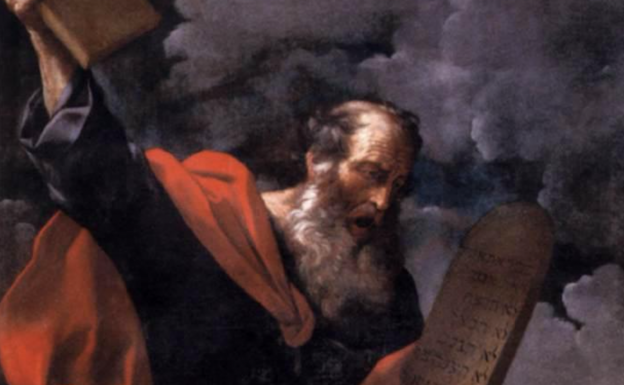Recently I saw a cartoon where a dog acting as a hotel manager asked a man whether his stay in the kennel would be overnight or longer, as an angry wife watched from the lounge window. In every relationship, there are times where things said or done result in displeasure and distance. I’m sure many parents have looked forward to disobedient children going to bed!
The Golden Calf incident resulted in a confrontation between God and the people over their grievous sin. It resulted in consequences for Israel. In this passage, we see it also resulted in God’s displeasure with Israel, as he commanded them to leave Sinai without his presence with them. Yet despite this, we see that God still desired fellowship with Moses.
At the end of chapter 32, we read that God commanded Moses to lead the people towards the Promised Land. In verse one, further details are given of this command.
Moses was to “depart; go up from here, you and the people whom you have brought up out of the land of Egypt, to the land of which I swore to Abraham, Isaac, and Jacob, saying, ‘To your offspring I will give it.’” God did not wipe out Israel but still intended to fulfill his promises to the Patriarchs.
But instead of referring to Israel as his people, he refers to them as those that Moses brought up out of Egypt. God distanced himself from Israel, like a parent saying to their spouse “that son of yours…”
This distance carries a hint of a less than complete divine blessing, as it is not “my angel” (20:23) but “an angel” which God would send before them to drive out the inhabitants who sat under God’s judgement for their sins (v.2).
God still commanded Israel to go to a place of blessing: “a land flowing with milk and honey”, but God was not going with them in a special divine presence “lest I consume you on the way, for you are a stiff-necked people” (v.3). He would bless from a distance.
God’s displeasure at their sin meant God did not want close fellowship with them as they were, and especially as their obstinacy, likened to a farm animal refusing to bear a yoke to help with plowing, could lead to their timely deaths from yet further sins.
What came next was a test of their obedience to God. The people, hearing God’s “disastrous words”, mourned and took off their jewelry (vv.4-6). While odd to us, jewelry was associated with pagan religion and had already contributed to the Golden Calf, so removing them showed repentance and set them apart from other cultures around.
While God did not want to dwell in the midst of Israel, he was still willing to meet with Moses. In verse seven we learn that Moses’ practice from Egypt to now had been to erect a temporary tent where he would commune with God, which because of Israel’s sin he began to erect outside the camp. Given that Israel was in the “dog box” they were very aware that God’s displeasure at their mediator spelt disaster, so used to watch to see him safely arrive at the tent and the glory cloud descend (vv.8-9).
While before they had rebelled as Moses and God communed on Mount Sinai, their repentance showed in their worship of God as he fellowshipped with Moses (v.10).
As Israel looked on outside and worshipped, God “used to speak to Moses face to face, as a man speaks to his friend” (v.11). Moses enjoyed God’s confidence and personal communication in a way not experienced by later prophets or Israel.
Only Joshua, who had remained on the mountain (and not participated in the sin of the calf) could come near, as he stood guard outside the tent and to summon Moses back from the camp to another audience with the Divine King (v.11).
This passage reveals to us another consequence of our sins, one which as personal beings should not surprise us: it affects our relationship with God. Sin drives a wedge between us and God. God is displeased by our sin, it grieves the Holy Spirit (Ephesians 4:30-31).
We should seek first of all to avoid sin, so as to avoid God’s displeasure. But when we do sin, we should seek to repair that relationship by repenting of our sins, and taking off those things which are associated with our sinful acts.
But the coming of Christ also fills us with hope, because in every Christian dwells the Holy Spirit who brings us close fellowship and communion with God, every day, even when we sin. We do not have to go to a tent to meet God, but instead God has met us by dwelling in us.
And we do not have to fear the withdrawal of God to a distance from us, because God is always with us. As we walk towards the Eternal Promised Land, God is guiding us, until one day we will speak to him face to face.

